County Lines: Cost of living crisis used by gangs to lure new recruits
- Published
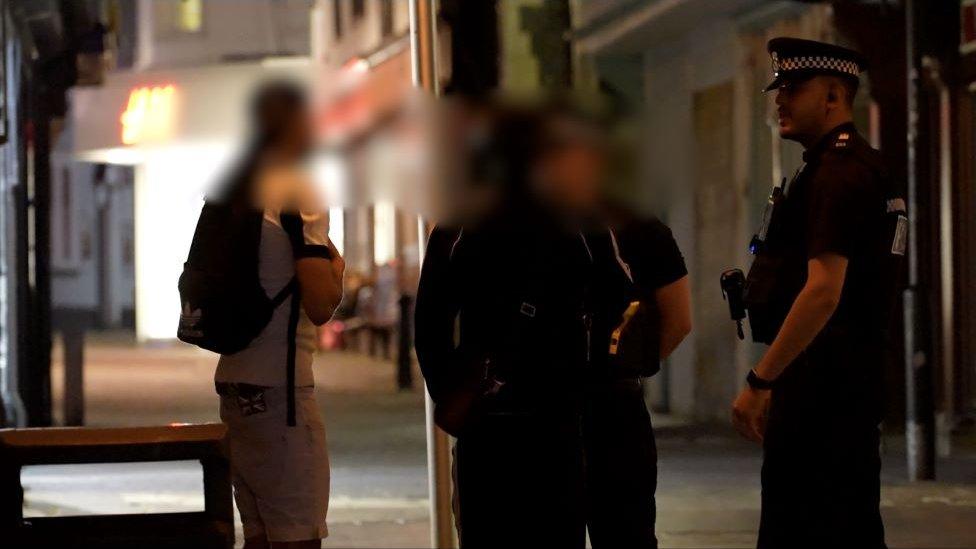
Former gang members and those trying to support them claim the rising cost of living is being used by organised criminals exploit those struggling to make ends meet
County lines is the name given to drug-dealing networks connecting urban and rural areas, using phone lines, across the UK. Former gang members and those trying to support them claim the rising cost of living is being used by organised criminals to exploit those struggling to make ends meet.

'It's the money'
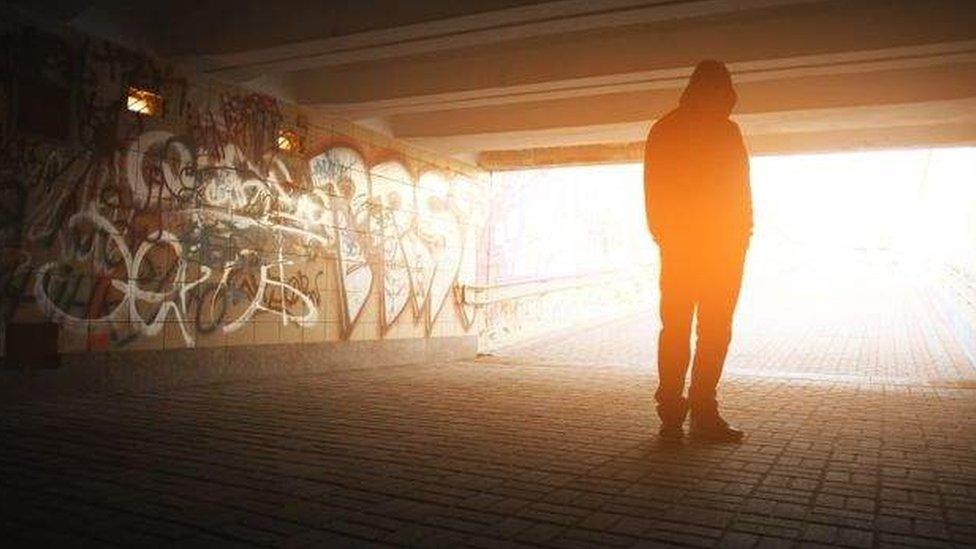
Former gang member Jordan says gangs often target people struggling at home
Jordan, not his real name, was part of a county lines gang that sold and moved drugs in Essex and Cambridge. Six months ago he left but says he knows that gangs are targeting other teenagers who are in desperate need of money.
With the cost of living rising and more and more households worrying about how to pay for the most basic items, Jordan says the gangs offer cash and high value items that lure young people in.
"Money makes the world goes round, that's what they say isn't it?"
"It's the money, it's easy money - that's what they say, money, money."
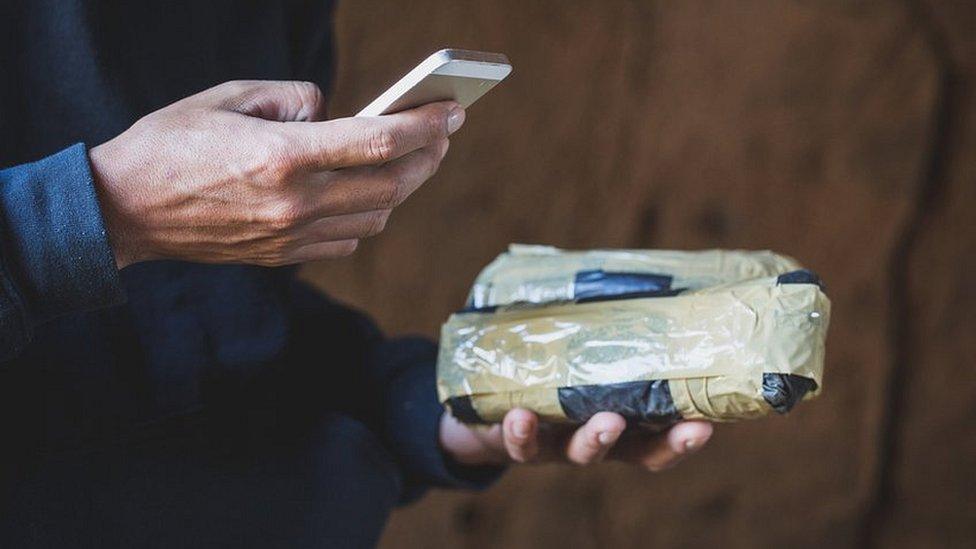
County line gangs are urban drug dealers who sell to customers in more rural areas via dedicated phone lines
Jordan was recruited by friends, a common form of recruitment, along with offers of money and the targeting of people struggling at home.
"Everyone gets involved in it," Jordan says. "It can be family matters at home. Someone could even be walking down the road and if you haven't got a lot of money at the time someone could criticise you, like cuss you, about 'look at the shoes he's wearing', 'he needs a haircut'."
After months of violence and selling drugs, Jordan decided to leave the gang and has been working with charity Refocus to warn others of the dangers involved.
"County lines is probably the worst thing you can get yourself involved in.
"I have been attacked, I have attacked people, I have been stabbed twice. I was carrying crack cocaine.
"I wasn't going to do it for the rest of my life. Let's just say that I wanted out.
"I just didn't want to end up dead."

'Cost of living impact'
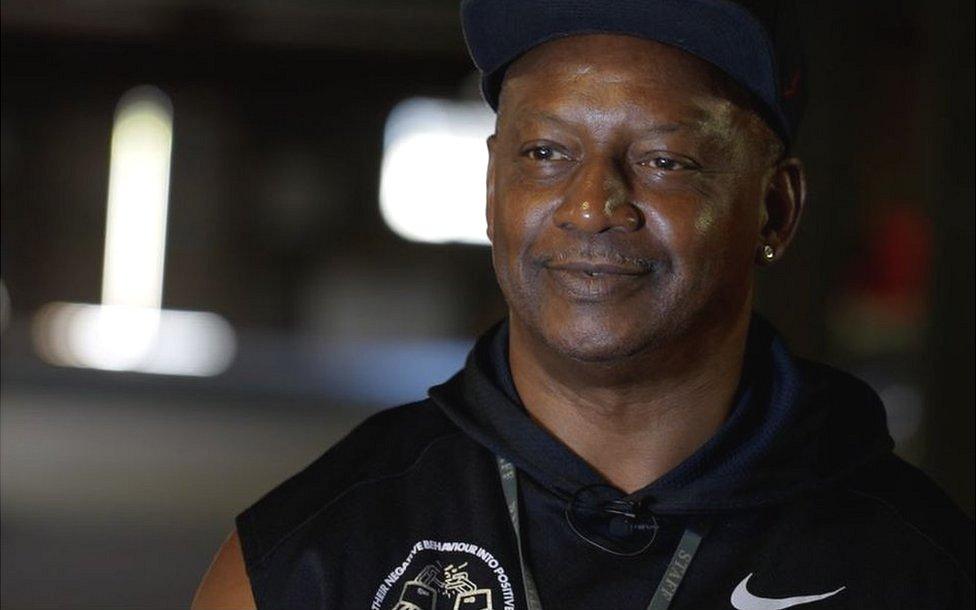
"Gang members know how to target young people," said Lennox Rogers, the co-founder of Refocus
Lennox Rogers is the co-founder and CEO of charity Refocus, external.
He says there is now a direct link between the cost of living crisis and county lines gangs recruitment.
"The cost of living has had an impact on county lines, it's made it easier.
"I think people are more willing to consider earning money illegally because they can't get money and so the kind of people they [the gangs] can target, there's more.
"There's illegal refugees... children who can't afford meals and some of these gang members have come from poorer backgrounds - they know who and how to target young people."

You might also be interested in:

Mr Rogers is worried more young people will become trapped as they accept help with buying food or other financial shortages as the cost of living crisis deepens.
He also worries more people will become vulnerable to "cuckooing" in which gangs find vulnerable people and use their homes as a base for drug dealing.
"People who can't afford to heat their house, they have to make the decision - heat or eat. They're targets for cuckooing where their house becomes a drug den.
"County lines can expand more because it's easy to trap people without money.
"It's kind of like the best time to be doing the crimes that they're doing.
"People are more willing to consider earning money illegally."

'Quick money'
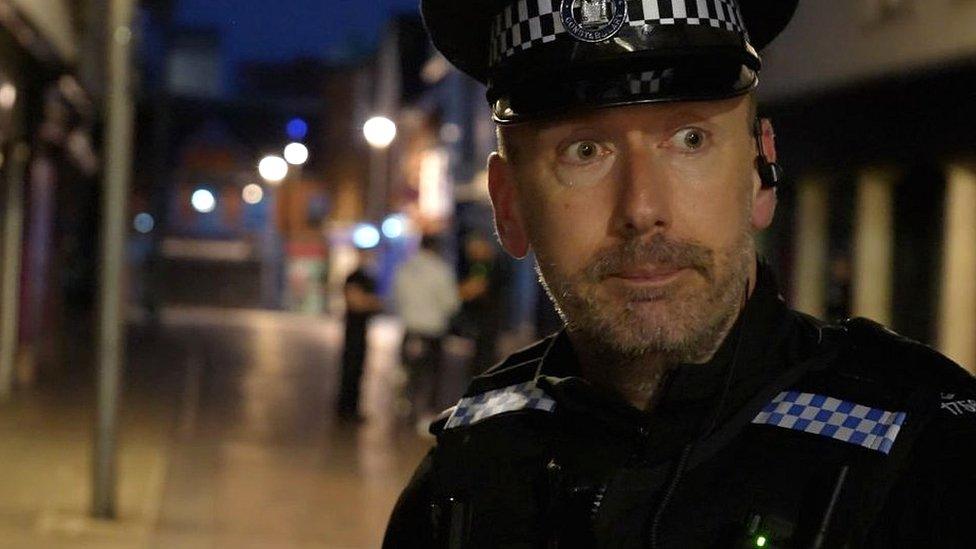
Police officers in Suffolk have encountered children as young as 12 who are on the periphery of the county lines scene
Finding and prosecuting recruiters for gangs has become an operational focus for police.
In Ipswich, one officer told the BBC: "Some of these children come from nothing - so obviously when they get a lot of money in their pocket, they think that's brilliant.
"They think they have friends and, due to the cost of living, young people are getting more involved in criminal activity to get that quick money."
A second officer said while a county like Suffolk might seem a safe and affluent county, it has, like most areas, issues with county lines drug gangs.
The force has encountered children as young as 12 who are on the periphery of the county lines scene.
"What I would do is encourage parents and carers to talk to children, to have a look to see if there are any changes their behaviour or coming home with items they can't afford, are they going missing on a regular basis?"

County lines and the consequences
County lines is a term used to describe criminal gangs who move illegal drugs from large cities, like London, to smaller places like Ipswich to sell them
Figures from May 2021 suggest there are 600 potential county lines, which is a reduction due to more accurate recording methods and improved police activity.
The gangs often recruit vulnerable children to carry and deal Class A substances, to reduce their own risk of arrest.
Earlier this year James Simmonds-Read, head of the Children's Society's national exploitation prevention programme, urged police forces to rethink criminalising children who may be victims of crime themselves and said charging them should be "an absolute last resort".
In Essex alone the number of children under the age of 16 arrested for drug dealing has more than tripled, reports the Local Democracy Reporting Service.
In 2021, 53 children were arrested for supplying controlled substances compared to 15 in 2017.
Essex Police, like their colleagues in Suffolk, are also now looking at how they classify young people involved in county lines in case they are victims of modern slavery.
Often people involved in the gangs are charged with drug related offences.
However violence can be a common feature of county lines with many also arrested for weapons offences and sometimes other violent crimes.
In December Amrik Singh, 19, from east London, was jailed for manslaughter and supply of Class A drugs connected to county lines drug-dealing in Norfolk.
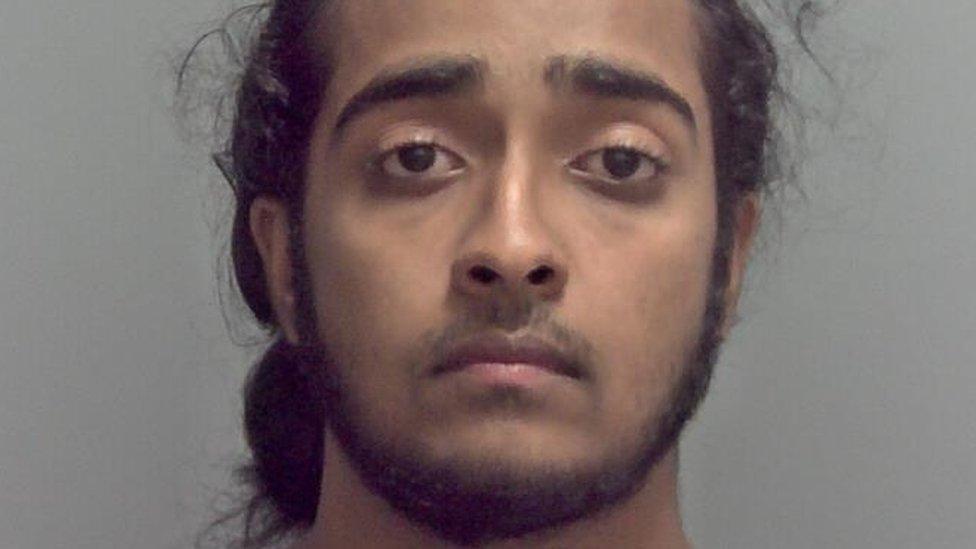
Amrik Singh, who lived in the Mill Meads area of Newham in east London, stabbed David Lawal in a county lines drug related incident in October 2019
Sentences for being concerned in the supply and production of Class A drugs, like cocaine, carry a maximum life sentence, while possession of a Class A drug carries a maximum sentence of seven years in prison.
Recruiters or gang leaders who exploit people for county lines can be charged with human trafficking and and modern slavery offences which, at the most serious level, can carry a life sentence, external.

Find BBC News: East of England on Facebook, external, Instagram, external and Twitter, external. If you have a story suggestion email eastofenglandnews@bbc.co.uk, external
Related topics
- Published20 June 2022
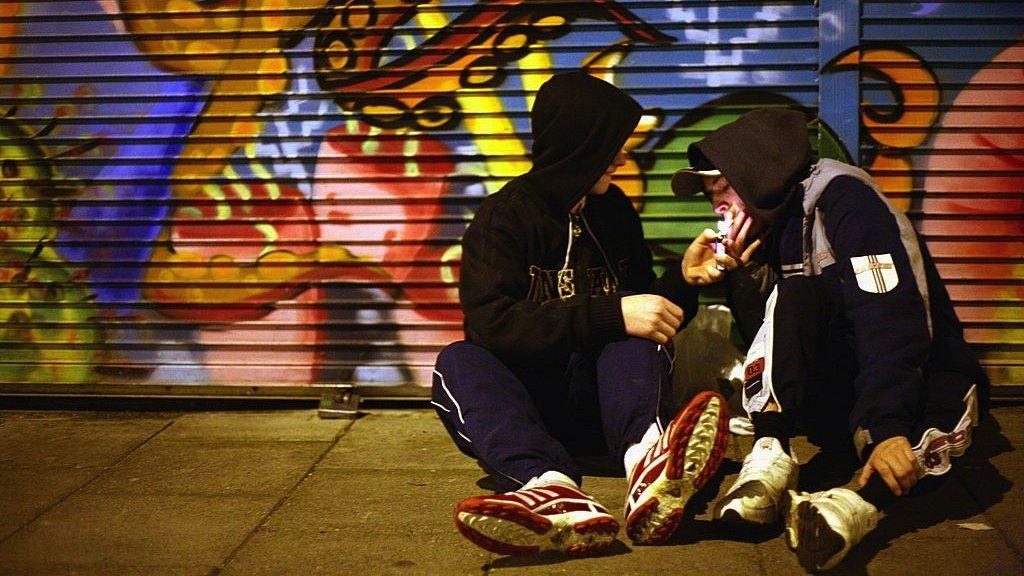
- Published18 May 2022
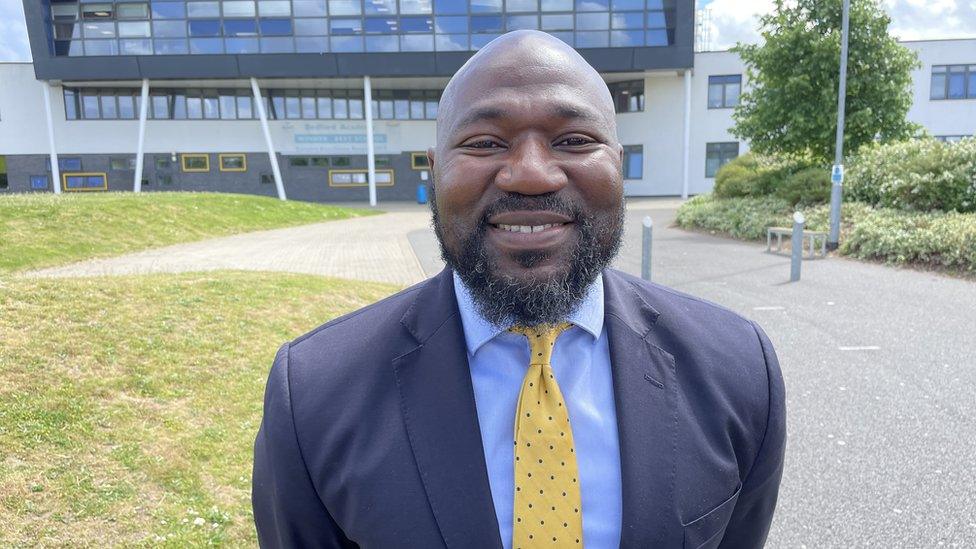
- Published9 March 2022
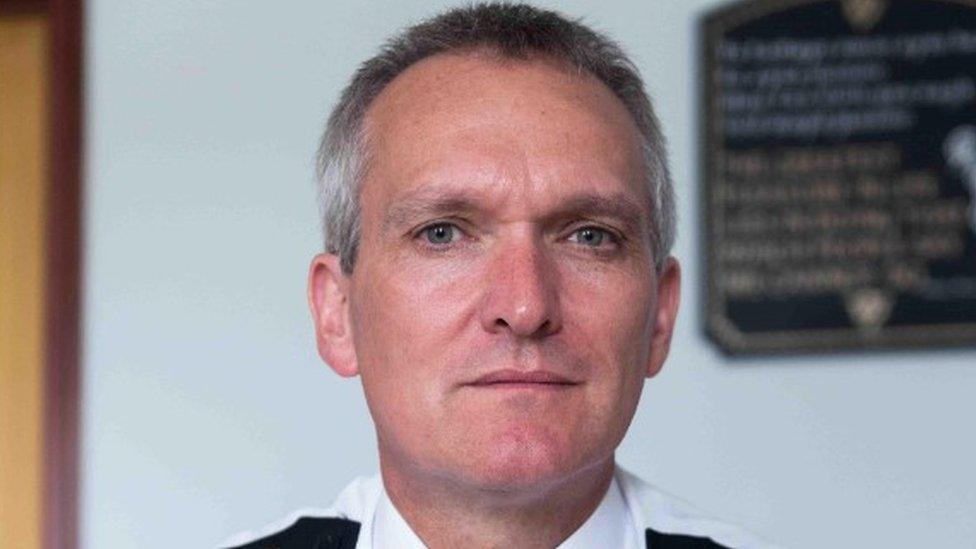
- Published19 November 2021
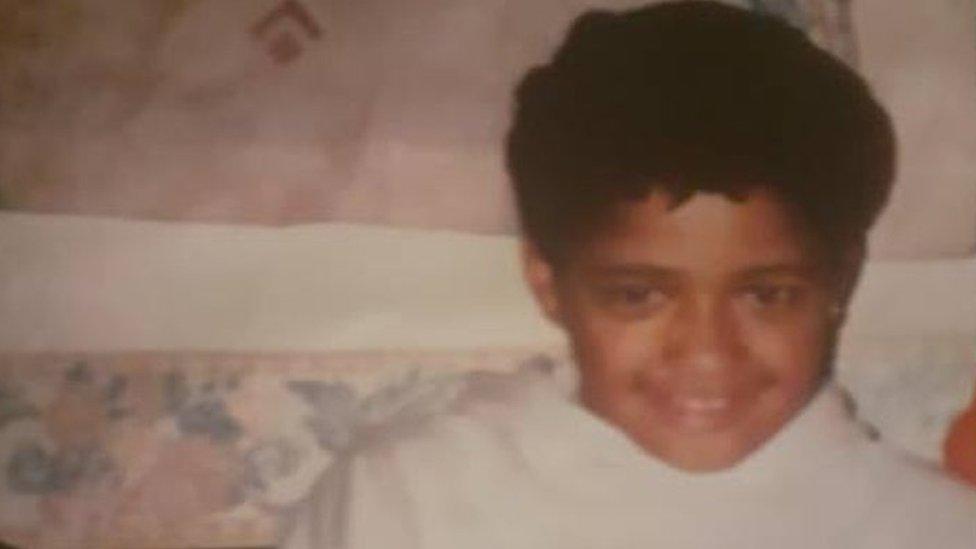
- Published27 May 2022
